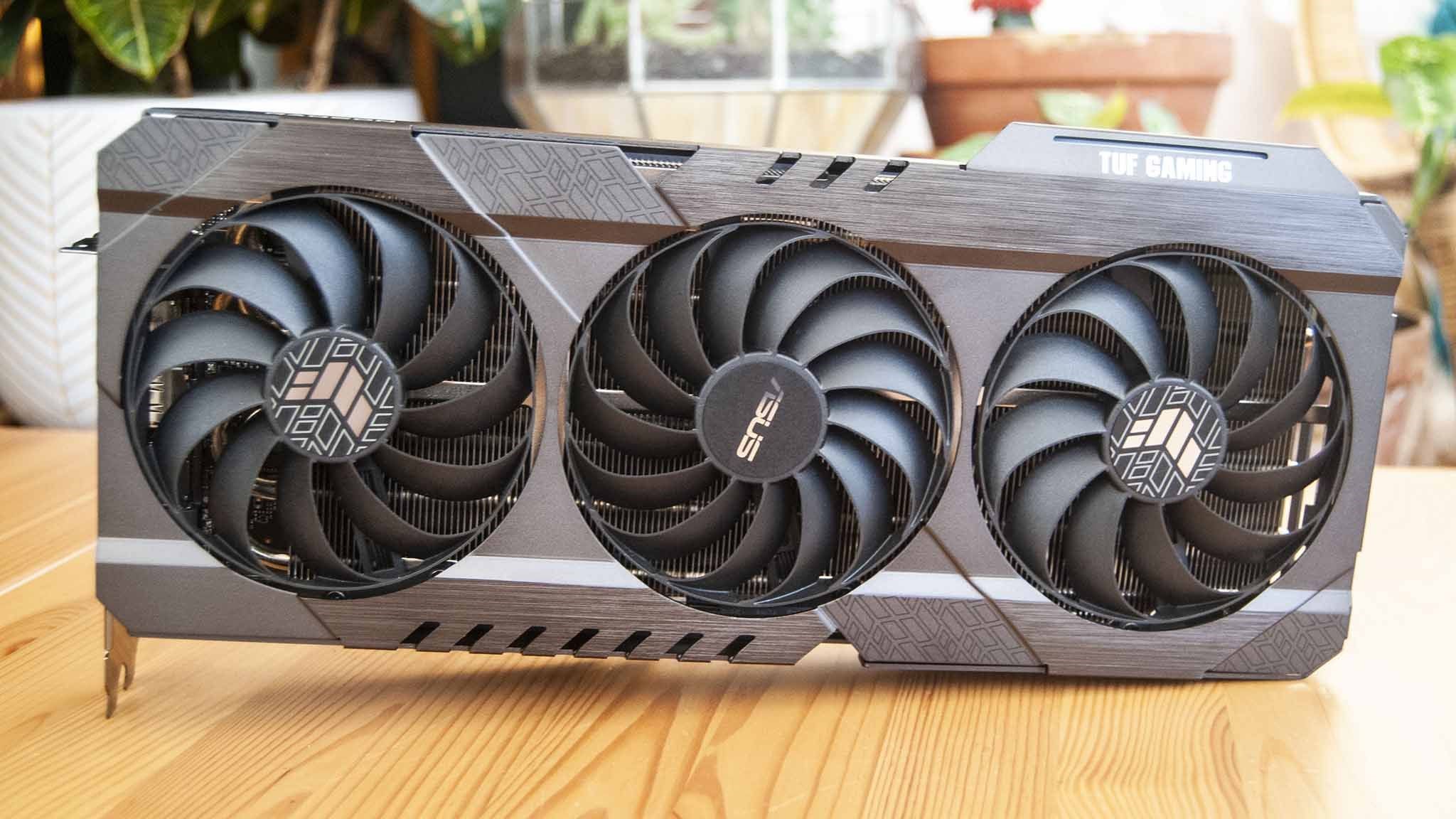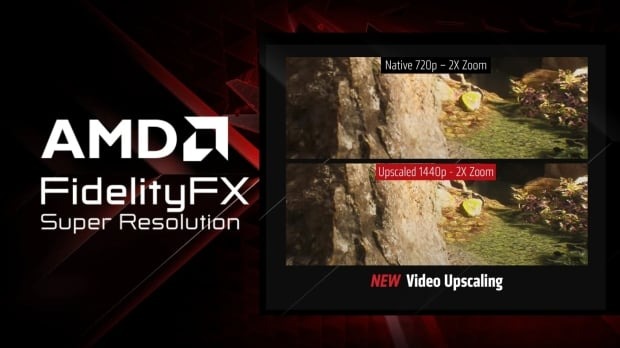FidelityFX Super Resolution will soon upscale your YouTube and VLC videos, and you don't even need an AMD GPU
You don't need an AMD GPU to take advantage of FidelityFX Super Resolution for upscaling videos.

What you need to know
- AMD FidelityFX Super Resolution will soon support upscaling videos on YouTube and within VLC.
- AN upcoming Radeon Adrenaline Software update will add support for FSR when watching YouTube videos.
- A future update to VLC will add FSR upscaling and hardware-based noise reduction at some point in Q1 2024.
- NVIDIA has a similar feature that uses RTX Video Super Resolution for upscaling videos.
AMD is about to roll out its video upscaling tech for both online and offline playback. As reported by TweakTown, AMD is working on FidelityFX Super Resolution support for upscaling videos through YouTube and VLC. The news came from AMD's presentation at CES 2024.
The support of video upscaling by FSR is both a welcome addition for anyone who has an AMD GPU that supports the feature and welcome competition for NVIDIA. NVIDIA's RTX Video Super Resolution stands mostly unchallenged at the moment when it comes to video upscaling. Hopefully, AMD rolling out competing tech will drive the companies to push each other.
What is FidelityFX Super Resolution?
FidelityFX Super Resolution, or FSR for short, is an upscaling technology that improves image sharpness and clarity. It's primarily a gaming feature that can upscale supported titles to higher resolution.
AMD is on its third generation of FSR and the library of supported titles continues to grow. The feature also improves frame rates quite a bit on supported games, though results vary based on your system's hardware and the game you're playing.
While FSR is on its third version, AMD did not specify which version of the upscaling technology will roll out for video playback.

Of course, today's announcement isn't about playing games. Instead, AMD's latest news is about video playback. The company only shared a single image of FSR in action for video playback, so we'll have to wait to see how it does in real-world testing. A still frame doesn't really show much when discussing a video upscaling feature.
To use AMD FidelityFX Super Resolution, you need a system with supported graphics. Notably, several NVIDIA GPUs are on the list:
Get the Windows Central Newsletter
All the latest news, reviews, and guides for Windows and Xbox diehards.
- AMD Radeon 6000 Series
- AMD Radeon 6000M Series
- AMD Radeon 5000 Series
- AMD Radeon 5000M Series
- AMD Radeon VII Graphics
- AMD Radeon RX Vega Series
- AMD Radeon 600 Series
- AMD Radeon RX 500 Series
- AMD Radeon RX 480/470/460 Graphics
- AMD Ryzen Desktop Processors with AMD Radeon Graphics
- AMD Ryzen Mobile Processors with Radeon™ Graphics
- NVIDIA GeForce RTX 30 Series
- NVIDIA GeForce RTX 20 Series
- NVIDIA GeForce 16 Series
- NVIDIA GeForce 10 Series
Offline video upscaling
Upscaling YouTube videos is a welcome addition, but I'm particularly excited for upscaling offline content by using VLC. The Radeon Adrenaline Software update that adds video upscaling should ship within the first three months of 2024, so we don't have to wait long.
VLC is a popular app for playing videos. It supports a wide library of standards and file formats. The app has an impressive feature set, especially considering that it's free. VLC already works with NVIDIA RTX Video Super Resolution. Soon, it will feature AMD's FidelityFX Super Resolution as well. That broadens the pool of how many PCs can upscale offline content.
While streaming videos online is king in 2024, offline content still has a place. Personal and professional videos are often stored offline and played locally. My PC has an NVIDIA RTX 3070 inside, so I can already upscale local videos. I'm curious to see how AMD's similar software feature compares.

Sean Endicott is a tech journalist at Windows Central, specializing in Windows, Microsoft software, AI, and PCs. He's covered major launches, from Windows 10 and 11 to the rise of AI tools like ChatGPT. Sean's journey began with the Lumia 740, leading to strong ties with app developers. Outside writing, he coaches American football, utilizing Microsoft services to manage his team. He studied broadcast journalism at Nottingham Trent University and is active on X @SeanEndicott_ and Threads @sean_endicott_.
